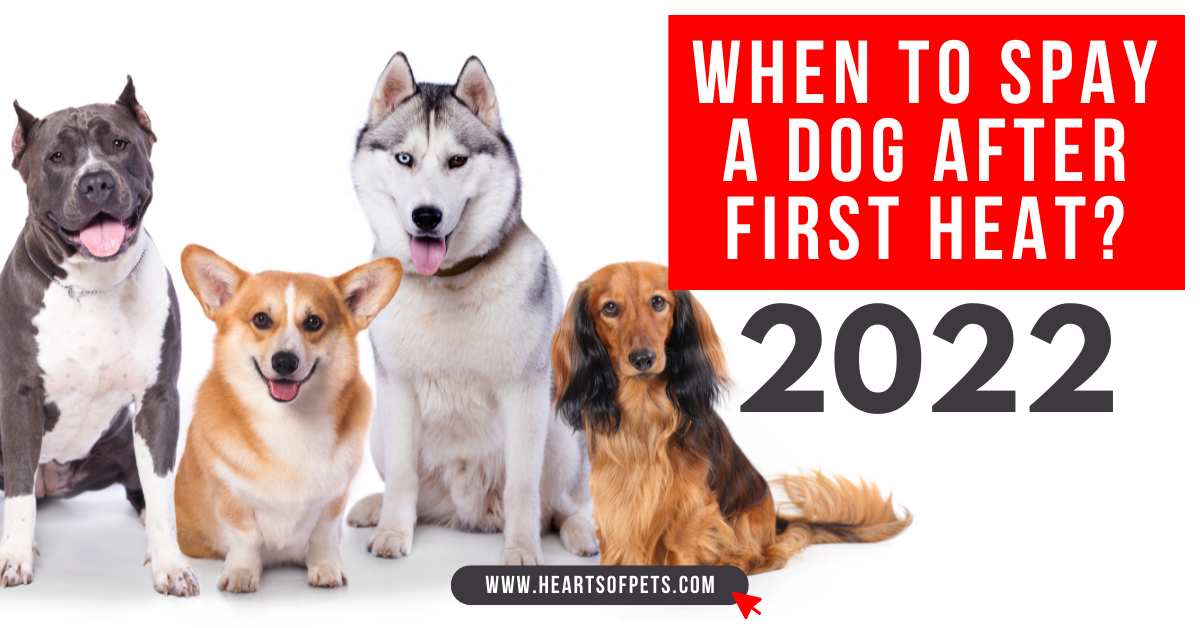Dogs are known for begging for human food, and it can be tempting to want to share a tasty snack with your furry friend. However, not all human foods are safe for dogs to eat. If you’ve ever wondered, “Can dogs eat pepperoni?” you’re not alone. This blog post will explore the answer to this question and discuss the potential risks and benefits of feeding pepperoni to your dog. So, can dogs eat pepperoni, or is it off-limits? Read on to find out.
What is Pepperoni?
Pepperoni is a spicy, cured sausage famous in the United States and other parts of the world. It is made from ground pork and spices, such as paprika, garlic, and fennel, and is typically sliced thin and used as a topping on pizzas, sandwiches, and other dishes. Pepperoni has a spicy, smoky flavor and is often considered a type of “deli meat,” along with other cured meats such as salami and prosciutto. It is typically sold in pre-sliced form and can be found in most grocery stores.
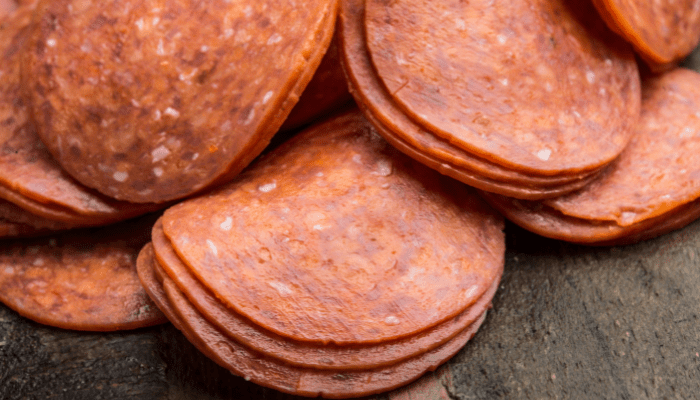
Are Pepperoni Slices Safe for Dogs?
Pepperoni is not toxic to dogs, but it is not a good idea to feed it to them as a treat. Pepperoni is high in fat and salt, which can harm dogs if consumed in large amounts. In addition, overeating fat can lead to pancreatitis, a serious and potentially life-threatening condition when the pancreas becomes inflamed.
High salt levels can also cause problems for dogs, including electrolyte imbalances and dehydration. Additionally, some dogs may be allergic to pepperoni or processed meats, which can cause symptoms such as vomiting and diarrhea. Therefore, it is best to stick to treats specifically made for dogs and consult a veterinarian before giving your dog any new types of food.
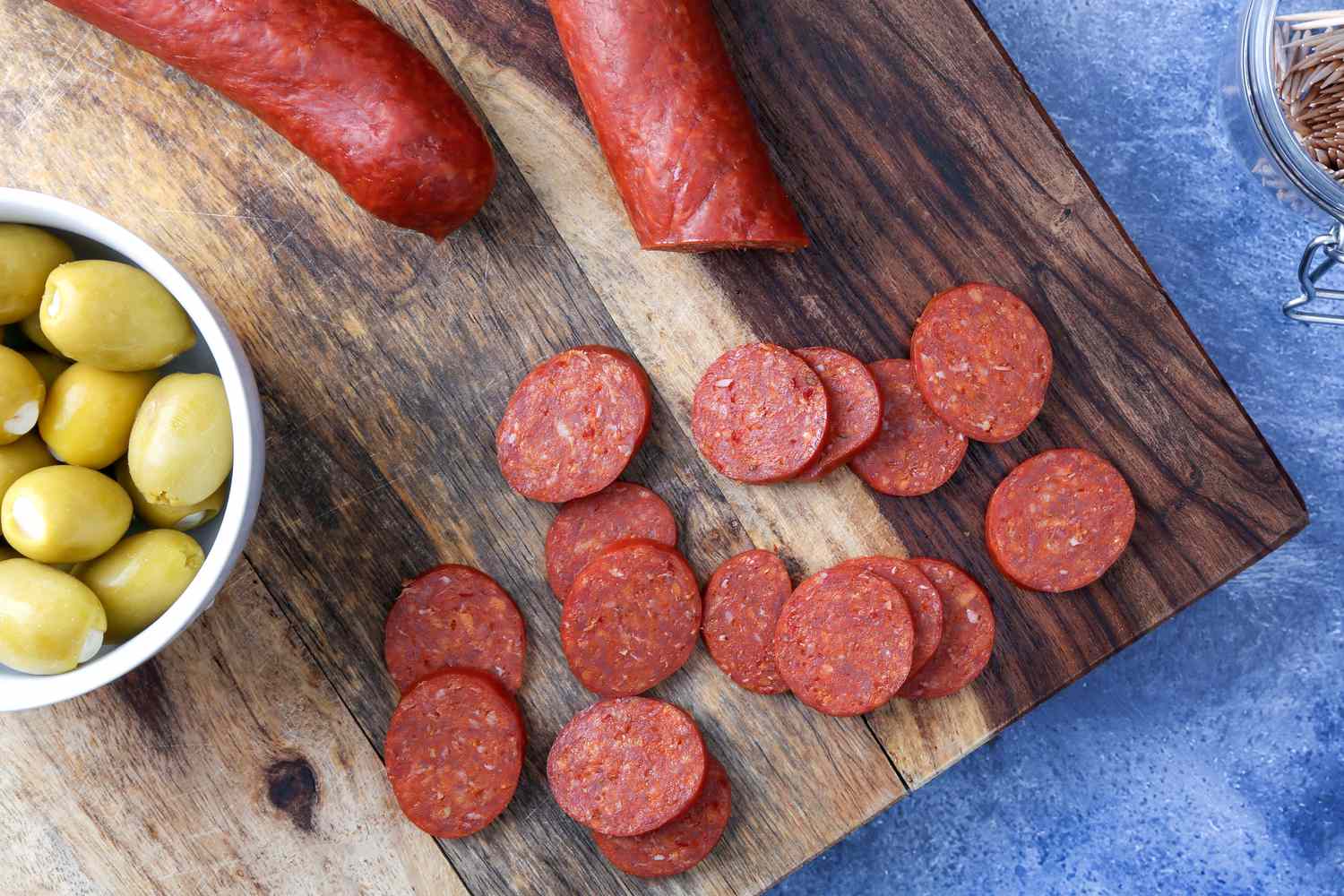
Can Dogs Eat Hot Pepperoni?
Dogs should not eat hot pepperoni. It contains several unhealthy ingredients for your pup and can also be toxic in large quantities. The main problem with hot pepperoni is the high-fat content—it has more than three times the amount of fat as regular pepperoni does! Fat can cause digestive issues in canines, such as vomiting and diarrhea, and can even lead to pancreatitis if consumed in high doses. In addition, hot pepperoni also often contains garlic and onion powder which are both toxic for dogs in large amounts.
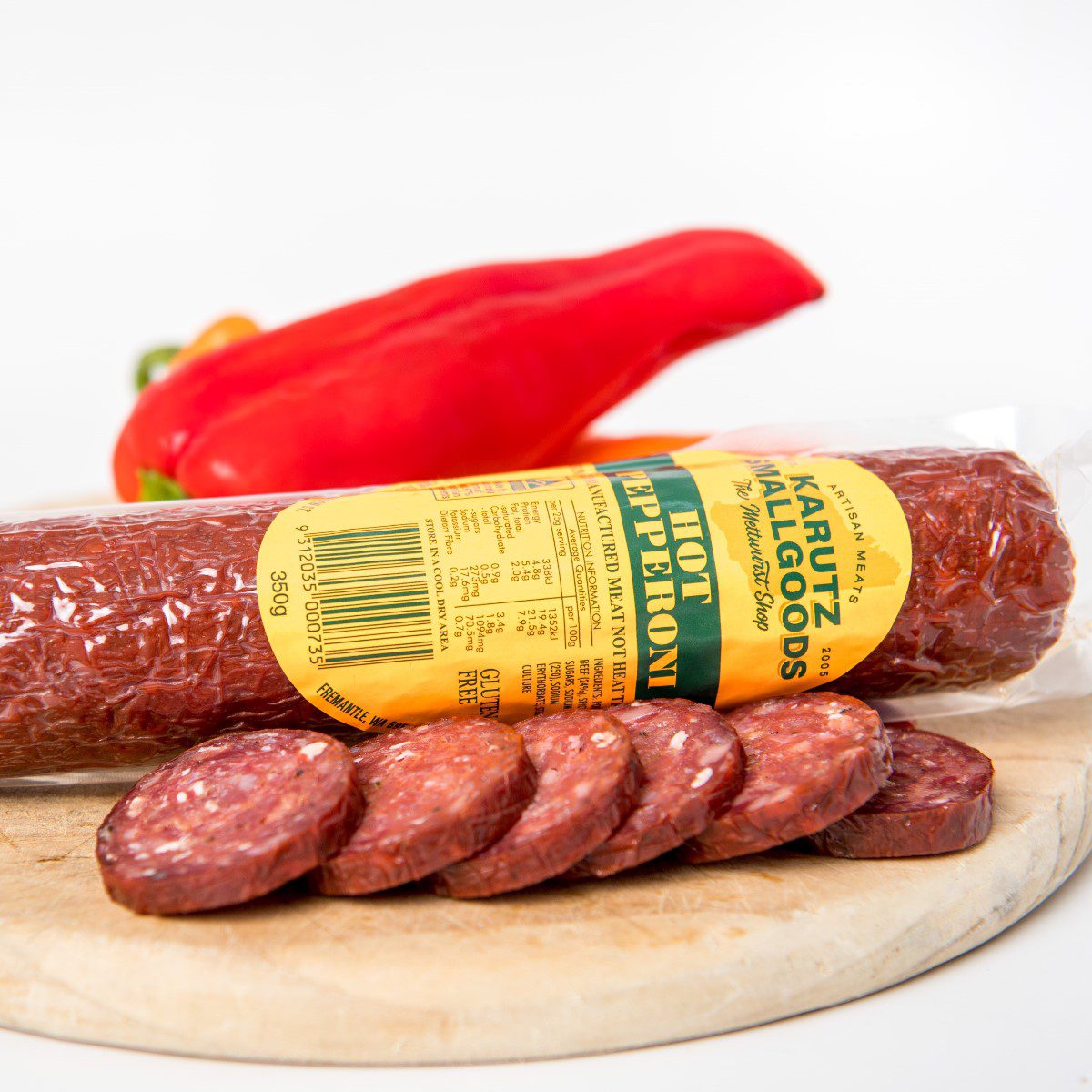
Can Dogs Eat Turkey Pepperoni?
Turkey pepperoni is a popular alternative to classic pork-based pepperonis. While turkey meat is generally safe for dogs in moderation, it’s important to note that turkey pepperoni still contains other ingredients that may not be suitable for your pup’s diet.
For instance, turkey pepperonis usually contain high amounts of sodium and fat, which can be unhealthy for dogs in large quantities. Additionally, many brands add sugar to their turkey pepperonis, which could potentially cause digestive issues for your pup. Therefore, if you give your dog some turkey pepperoni, limit the amount and watch for any adverse reactions.
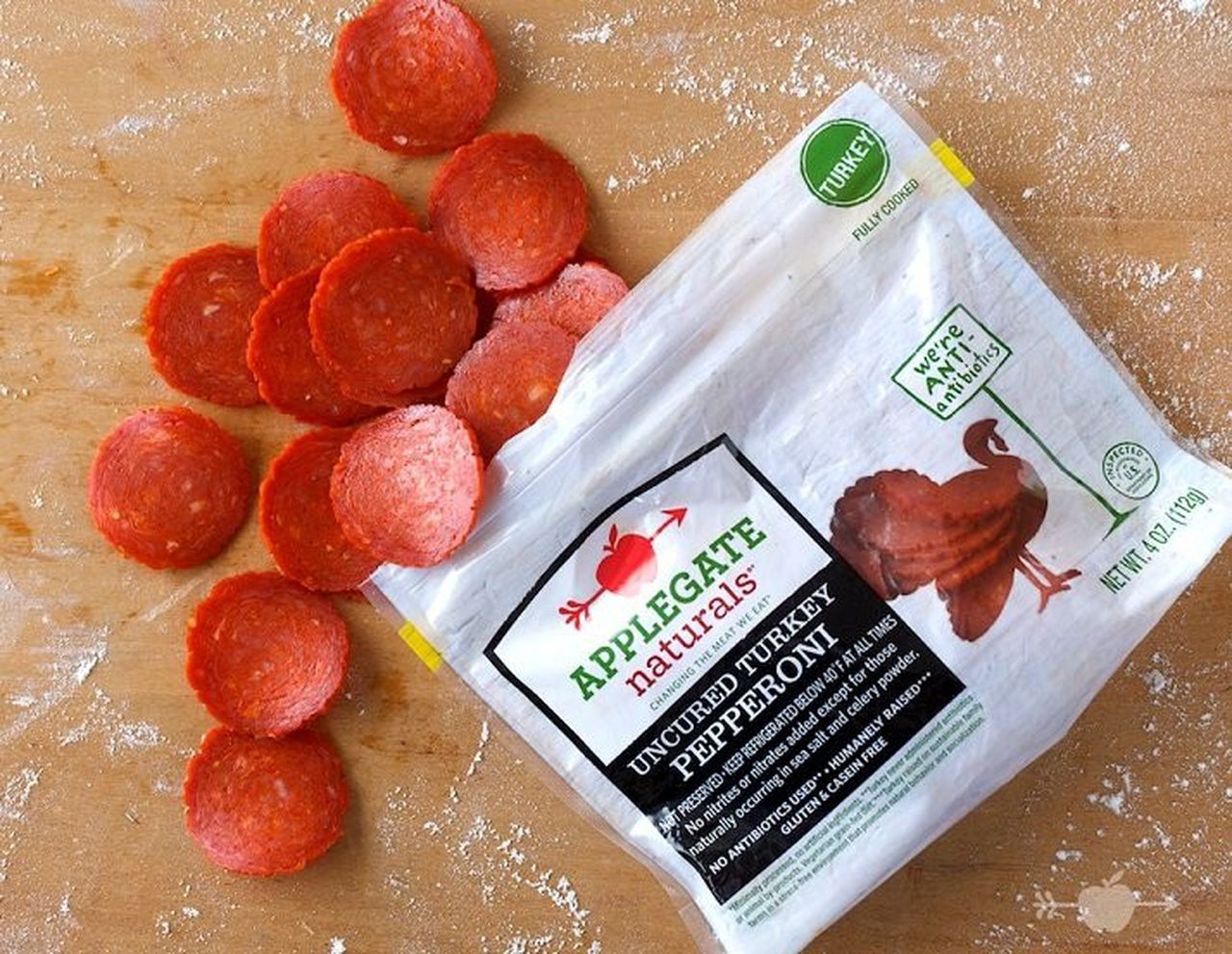
Can Dogs Eat Spicy Pepperoni?
The short answer is no—spicy foods can cause indigestion and heartburn in dogs like humans. Additionally, hot peppers contain capsaicinoids that can irritate your pup’s digestive tract. So while it might seem like a harmless treat at first glance, spicy pepperonis are best avoided when feeding your pet pooch.
Can Dogs Eat Pepperoni Pizza?
While pizza can make for an occasional treat for humans, it’s not advised that you give your dog pizza with pepperoni topping, as it can cause digestive issues in some cases. Plus, many pizzas contain garlic and onions, which are toxic to dogs. So for safety reasons, it’s best to say no when considering whether or not your pup can have pepperoni pizza.
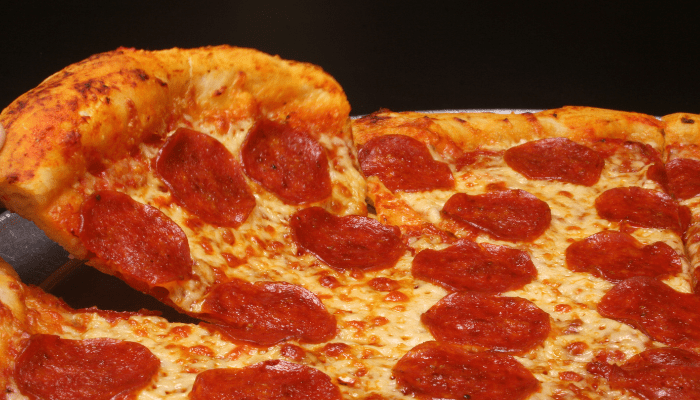
Can Dogs Eat Pepperoni Sticks?
Again, the verdict here is no because they are often heavily seasoned with spices and preservatives that could upset your pup’s tummy. In addition, some brands may also contain wheat flour which could cause an allergic reaction in some dogs. Furthermore, the high-fat content may also lead to severe stomach pain and pancreatitis in more sensitive pups.
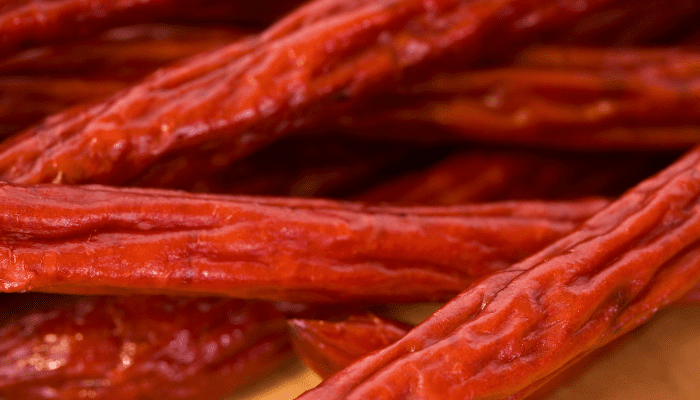
Can Dogs Eat Pepperoni Jerky?
This snack is usually made from beef or pork smoked for long periods or cooked in an oven at high temperatures until it becomes dry and crunchy. Because these snacks are typically low in sugar and fat (and don’t contain garlic or onions), they can be given as treats occasionally, but only if your vet approves first! However, since jerky products vary significantly in ingredients depending on their brand or flavor profile, always check the label before feeding your pup any of these treats.
Can I Give My Dog Low-Fat, Nitrate-Free Pepperonis?
Low-fat varieties or those made without nitrates might be safer for dogs than regular pepperonis. However, giving them any processed meat regularly is still not recommended due to its high-fat content and the potential risk factors mentioned above. Instead, choose healthier options like fresh vegetables or lean proteins like chicken breast or fish fillet when feeding your pup snacks between meals.
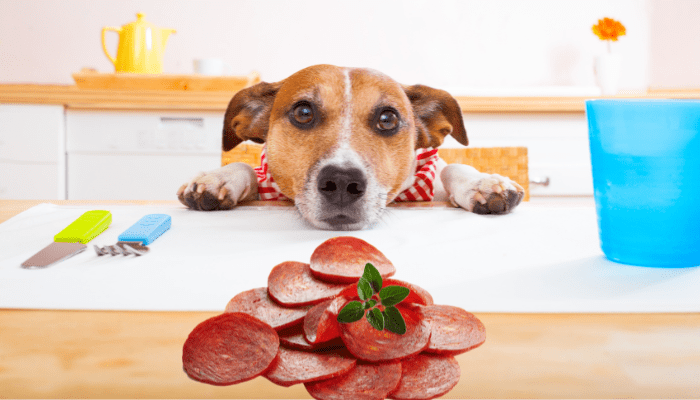
How Pepperoni Makes Your Dog Sick?
Pepperoni has a high-fat content and is made with preservatives, spices, and other ingredients that can be dangerous for dogs. The most concerning ingredient in pepperoni is garlic powder, which can cause anemia in dogs if they overeat. Moreover, the combination of garlic powder, sodium nitrate, sugar, and other preservatives found in pepperoni can lead to pancreatitis in some dogs. Pancreatitis is a pancreas inflammation caused by high fat intake, which can result in severe abdominal pain and vomiting.
Aside from these immediate health risks, there are also long-term risks associated with feeding a dog too much pepperoni. Studies have found that a diet high in fat can increase a dog’s risk of developing obesity or diabetes over time. Therefore, avoiding foods like pepperoni will help keep your pup healthy.

When Should I Not Feed Pepperoni to My Dog?
First, pepperoni is high in fat—too much fat can cause digestive issues like vomiting or diarrhea in dogs. Additionally, the preservatives used in many brands of pepperoni can cause an upset stomach if consumed in large amounts. Finally, there is also a danger of choking when feeding small pieces of food to dogs. Therefore, it’s best to avoid giving your pup any food that could become lodged in their throat or digestive tract.
Other Considerations When Feeding Your Dog Pepperoni
If you decide that you want to feed your pup pepperoni anyway, there are a few things you should keep in mind. First and foremost, ensure the pepperoni you provide your dog is cooked—raw meats can contain harmful bacteria, which could make your pup very ill if ingested.
Also, only give them small pieces—and never give them too much at once! Too much of any food can lead to an upset stomach or even dangerous gastrointestinal blockage in some cases. Finally, remember that every dog is different—some may not even like the taste of pepperoni despite its tempting aroma! So if your pup doesn’t seem interested in eating it after one or two tries, it’s best to leave it alone and find another treat for them instead.
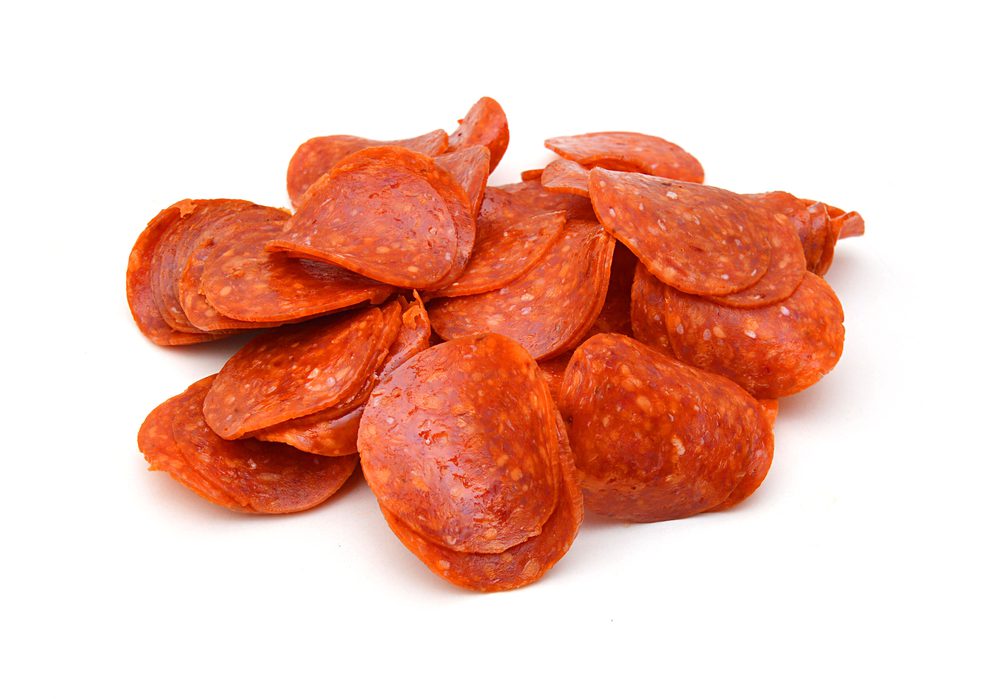
What Will Happen if My Dog Eats Pepperoni?
If your pup accidentally eats a few pieces of pepperoni, you shouldn’t worry too much as long as they don’t show any signs of distress afterward. However, if your dog regularly consumes lots of pepperonis or other processed meats (like salami), it’s time to take action and ensure their diet is more balanced and appropriate for their size and breed. Of course, it’s always best to consult a veterinarian about what food is best for your pet’s needs before changing its diet.
Alternatives to Pepperoni
There are many healthy alternatives to pepperoni that you can feed your dog as a treat. Here are a few ideas:
- Cooked, lean meats: Dogs can enjoy small amounts of cooked, lean meats such as chicken, turkey, or beef as a treat. Just be sure to remove any bones and avoid giving your dog fatty cuts of meat.
- Fruits and vegetables: Many fruits and vegetables can be safe and healthy dog treats. Some good options include apples, bananas, carrots, and green beans.
- Commercial dog treats: Many are made from high-quality, healthy ingredients. Look for treats made with whole grains, protein, fruits, and vegetables.
- Homemade dog treats: You can also make your dog treats at home using healthy ingredients such as oats, peanut butter, and pumpkin. Just be sure to avoid using ingredients that are toxic to dogs, such as chocolate, onions, and grapes.
It is always a good idea to consult with a veterinarian before giving your dog any new types of treats to ensure that they are safe and appropriate for your dog’s needs.

Final Thoughts
In conclusion, can dogs eat pepperoni? The short answer is no. It is not recommended. Overeating can lead to pancreatitis, electrolyte imbalances, dehydration, and potential allergic reactions in some dogs. In addition, while turkey pepperonis can be a healthier alternative to regular pork-based pepperoni, they still contain high amounts of fat, sodium, and potentially added sugar.
Spicy pepperoni can cause digestive issues due to capsaicinoids, while pepperoni pizza can contain too much cheese and butter for canines. If you’re looking for a nutritious treat for your pup, opt for fresh vegetables or lean proteins like chicken breast or fish fillet. Always consult a veterinarian if you have concerns about your pet’s diet.
Frequently Asked Questions
Can I give my dog pepperoni?
Pepperoni and its related high-protein foods, such as sausage, cheese, and beef jerky, are not a good choice for your pup. Not only can it cause stomach upsets, but that delicious pepperoni pizza isn't the healthiest option either! So to keep man's best friend healthy - avoid these snacks altogether.
How much pepperoni can a dog eat?
Dogs may be tempted to enjoy a slice of pepperoni now and then, but consuming it more than once a month could spell trouble. Too much sodium can lead to digestive issues or, worse, pancreatitis and kidney disease - so proceed with caution.
Is pepperoni pizza toxic to dogs?
Pepperoni may be a delicious snack for humans, but due to its high salt content, it is an unhealthy choice for furry friends. If given too often, dogs can experience unpleasant side effects such as digestive issues or kidney disease, easily avoided by steering clear of this tasty temptation.
Can dogs eat salami or pepperoni?
Salami is a popular food choice; however, it's important to remember that this type of meat should not be part of any animal’s diet. High consumption can lead to an increased chance of developing cancer-related health issues - so make sure you keep your furry friends safe and opt for healthier treats.






